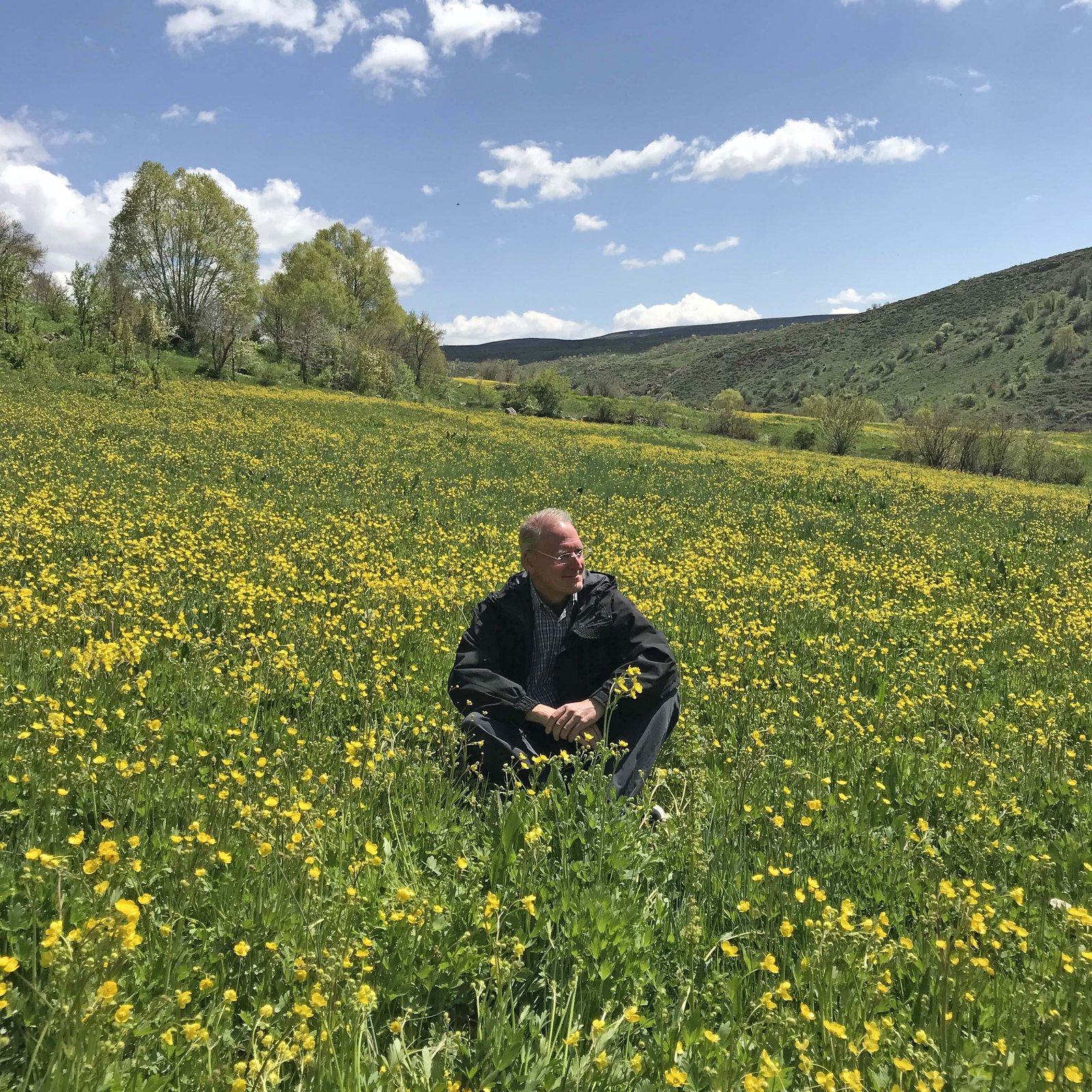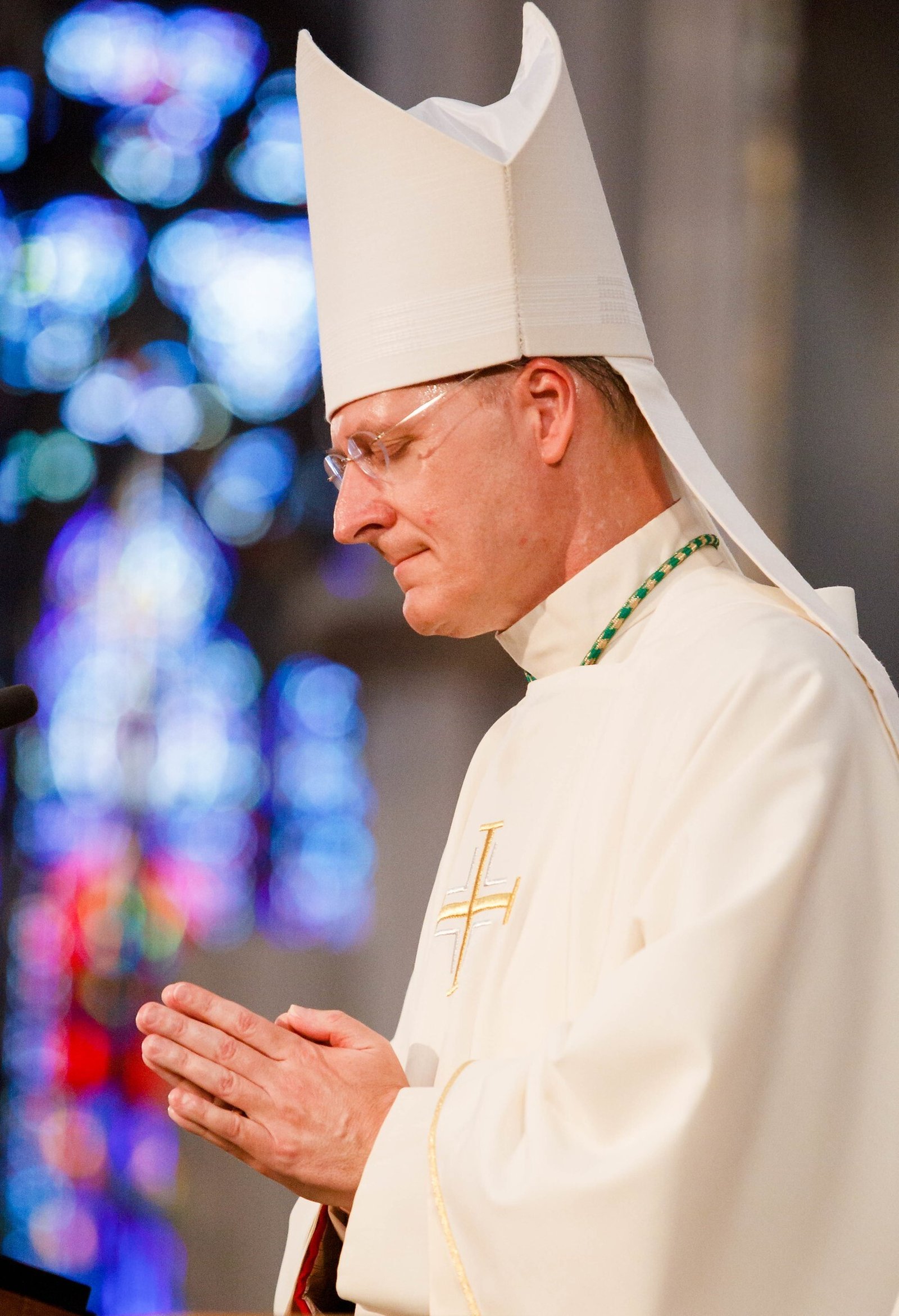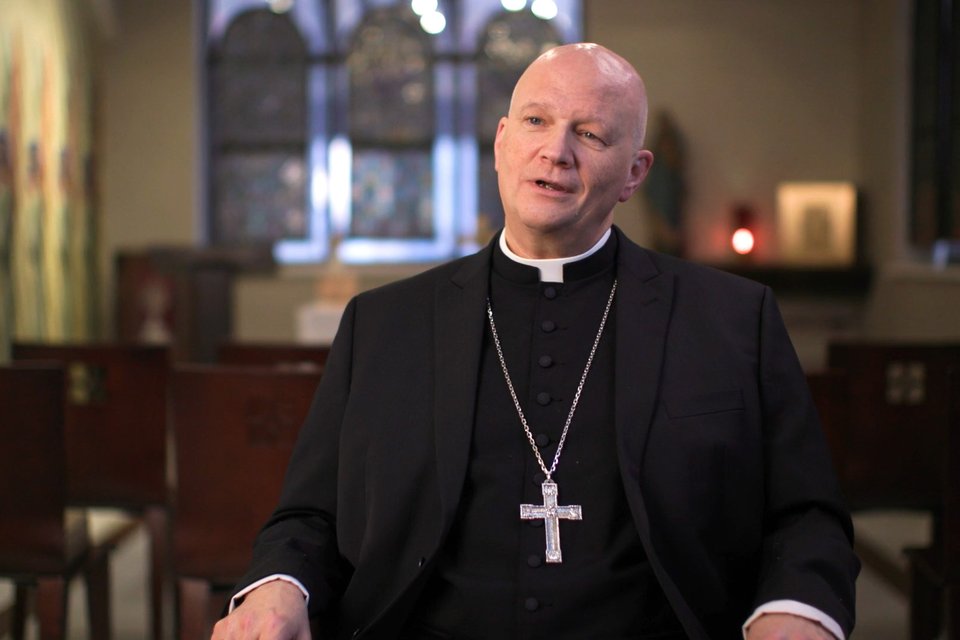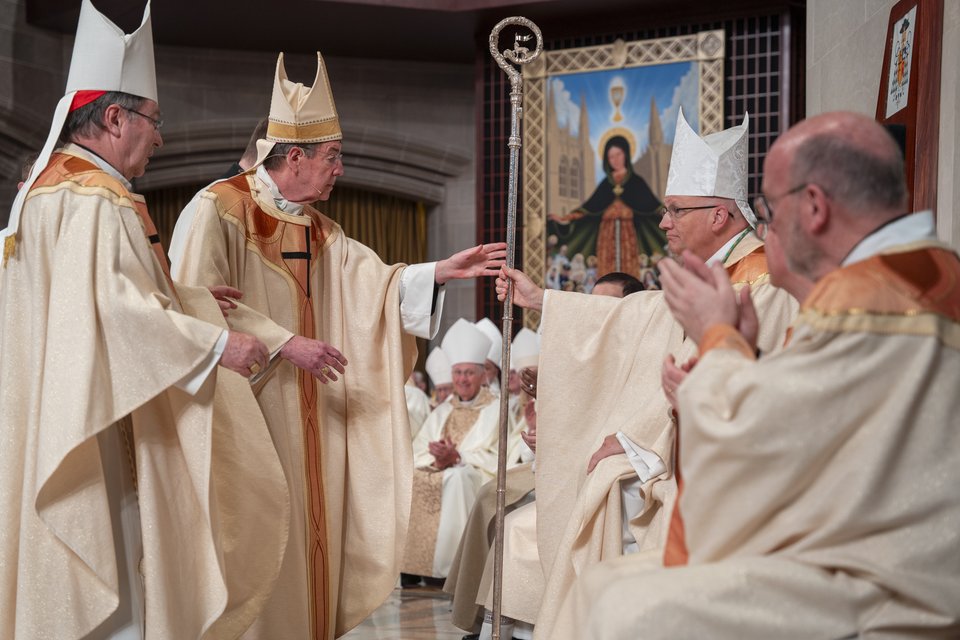Detroit’s newest auxiliary bishop to be welcomed to the Archdiocese of Detroit during July 7 liturgy and inauguration
DETROIT — On July 7, the Archdiocese of Detroit will officially welcome its newest auxiliary bishop when Archbishop Paul F. Russell greets the faithful for the first time at the Cathedral of the Most Blessed Sacrament.
Detroit Archbishop Allen H. Vigneron, along with Detroit’s other auxiliary bishops, priests, deacons, religious and lay faithful will welcome Archbishop Russell to the archdiocese during a 2 p.m. Liturgy of Welcome and Inauguration of Ministry, followed by a reception.
Archbishop Russell will serve as the 31st auxiliary bishop in the archdiocese’s history. Although he retains the title “archbishop” by virtue of his previous appointment as apostolic nuncio to Turkey, Turkmenistan and Azerbaijan, Archbishop Russell’s appointment to the Archdiocese of Detroit — an archdiocese where he has personal ties — comes as an auxiliary, or assistant, to Archbishop Vigneron.
An auxiliary bishop is different from a coadjutor archbishop, who has the right of automatic succession in the diocese to which he’s appointed. Archbishop Russell has not been appointed coadjutor archbishop in Detroit.
Once he arrives, Archbishop Russell will serve with Auxiliary Bishop Gerard W. Battersby in the South Region of the archdiocese, which includes parishes in southern Wayne and Monroe counties.
In October, another Detroit auxiliary bishop, Bishop Donald F. Hanchon, will turn 75 years old, the age at which bishops are required by canon law to submit their resignations to the pope. If, as expected, Pope Francis accepts Bishop Hanchon’s retirement, Bishop Battersby would take over Bishop Hanchon’s pastoral responsibilities in the archdiocese’s Central Region, which includes the city of Detroit, Hamtramck and Highland Park.

As he prepares to inaugurate his ministry in the archdiocese, Archbishop Russell told Detroit Catholic he’s excited to get to know the people of Detroit.
“I read something once that said Detroit is one of the few American cities left with soul, and of course, soul (music) originated in Detroit, so there’s different levels of meaning to that,” Archbishop Russell said with a smile. “It’s exciting for me. I’m looking forward to learning and contributing to help people here in any way I can.”
Archbishop Russell’s deeply thoughtful personality came through as he spoke for a second time with Detroit Catholic since his appointment was announced May 23.
Born in Greenfield, Mass., and ordained a priest for the Archdiocese of Boston, Archbishop Russell spend the majority of his childhood in Alpena, growing up in St. Bernard of Clairvaux Parish in the northern Michigan city along Lake Huron.
After five years in parish ministry and a year serving as priest secretary to Boston’s cardinal-archbishop, the future archbishop joined the Vatican’s diplomatic service in 1993 at the age of 34. Over three decades in ministry, he served the Church in nearly a dozen countries, including in Ethiopia, Eritrea, Djibouti, Zimbabwe, Turkey, Turkmenistan, Azerbaijan, Switzerland, Liechtenstein, Nigeria and Taiwan.
In 2016, Pope Francis appointed him apostolic nuncio — or Vatican ambassador — to Turkey and Turkmenistan, which carried with it his elevation to the episcopate. The pope added Azerbaijan to his responsibilities in 2018.

Despite his global experience, when asked to share his most impactful spiritual experience, Archbishop Russell hearkens back to his time as a teenager.
“Actually, it was before my ministry. I was 18 years old,” Archbishop Russell said. “I had been sent as an exchange student to a Catholic school in France, where we had to study nine hours of philosophy a week. Our teacher was a priest of the Archdiocese of Lyon, and we talked about life’s big questions.”
The son of one of the families with whom the young Russell stayed was a classmate, and the two were up late one night talking about the existence of God.
“We were talking about the question of God’s existence, which is a fundamental question that everyone is called to answer in their life,” Archbishop Russell said. “We were in the darkness getting ready to go to sleep, and he cited me a quote from St. John Vianney: ‘If, when I die, I find that God does not exist, I will have been well-fooled. But I would still not regret having spent my life believing in love.’
“When he said this to me, I felt this burst of energy that went from my heart to the tips of my toes to the top of my head,” Archbishop Russell said. “I felt an explosion of warmth inside, and I thought, ‘OK, there’s no question.’ That was a very transformative experience for me.”
Archbishop Russell had thought about the priesthood from a young age, but “as a teenager, you question everything,” he said. “That’s the normal thing to do. But that experience was so powerful that it put my life on the path where I find myself today.”

Interestingly, he added, his French friend also entered the priesthood — and today he’s a bishop, too: Bishop Pierre-Yves Michel of Valance, France.
“I think that was God’s work,” Archbishop Russell said. “It wasn’t just the quote, but I had an experience of God’s love at that moment.”
As a priest and later a bishop, Archbishop Russell said he’s tirelessly fascinated by the gift of Jesus in the Eucharist.
“I don’t think it’s possible to fully understand the depth of what the Eucharist is,” Archbishop Russell said. “It’s like a second incarnation. Jesus was living the life of the Trinity and he took flesh. This is what we celebrate at Christmas — that the Word became flesh and dwelt among us. His life was for our salvation and to show us the path to God.
“In the same way, at the Last Supper, he took flesh again in his own hands, and poured himself into simple bread and wine, which are transformed inwardly into his Body and Blood, Soul and Divinity, and then put into our hands and into our mouths to receive, and to transform us inwardly into what we’re receiving,” he added. “This is, for me, the most beautiful and deep and rich aspect of our Catholic faith.”

As the U.S. Church enters a three-year National Eucharistic Revival, given waning belief in the sacrament, the Archdiocese of Detroit’s concurrent Year of Prayer for Priestly Vocations goes hand in hand, Archbishop Russell said.
“Priests are essential for the life of the Church,” Archbishop Russell said. “Unless young men — men of any age, really — are willing to step up, we can’t have the Eucharist. We can’t have the forgiveness of sins and the anointing of the sick. These sacraments are so essential to our lives as Catholics. It gets hard to imagine following Jesus without the support of the sacraments.”
For strength, Archbishop Russell said he turns often to the example of the saints, particularly Blessed Michal Piaszczynski, the first cousin of his paternal grandmother. Blessed Piaszczynski was a Polish priest and martyr who was killed during the Nazi concentration camps during World War II.
“He’s always had a strong influence on me,” Archbishop Russell said. “And he’s a close relation.”
Archbishop Russell said he also looks up to St. Francis of Assisi, St. John of the Cross and St. John Vianney, in addition to his two namesakes, St. Paul and St. Patrick.
“My patron, St. Paul, is very important to me, and it seems that my life has some parallels with his,” Archbishop Russell said. “I had the opportunity to walk in his footsteps in Tarsus, Antioch and Ephesus. I also had the opportunity to retrace his first missionary journey in Cyprus and in Turkey. One of my favorite Scriptures is Romans 8: ‘For to those who love God, everything works for the good.’

“Also, my mother is of Irish heritage, and St. Patrick had a big role in my life,” Archbishop Russell added. “My mother’s family name is Fitzpatrick, which is also my middle name. It means ‘son of Patrick,’ and I’ve always felt close to him.”
As he undertakes his new ministry, Archbishop Russell said he’s grateful to all those who are praying for him, and he promises to return the favor.
One parish in particular, SS. Andrew and Benedict in Detroit, has been doing that since long before his appointment in the Archdiocese of Detroit, he said.
“My friend, Fr. Ed Zaorski, was pastor there for nearly 25 years, and I grew close to that parish,” Archbishop Russell said. “Almost every country where I’ve been, I’ve brought back things that are in that church. I’ve truly felt the prayers of that parish and of so many other people in different places around the world who have been supporting me in my ministry.
“I’m very grateful for that, and I continue to ask for people’s prayers, just as I promise to pray for them,” he said.
Related stories
- Pope appoints Vatican diplomat Archbishop Russell as Detroit auxiliary bishop
- As he arrives in Detroit, Archbishop Russell sees 'God's work' guiding his life
- Mountain climbing? Swimming? Biking? New auxiliary bishop the outdoorsy type
- Instagram bishop: How Archbishop Russell discovered the power of social media
- Archbishop of ... Novi? No, Archbishop Russell's 'titular see' isn't in Michigan
- Detroit priests who know Archbishop Russell say he's a 'good listener,' caring pastor
- What's the difference between an archbishop and an auxiliary bishop?
About Archbishop Russell
- Meet Detroit's newest auxiliary bishop: Archbishop Paul F. Russell's biography
- 'Cor ad cor loquitur' — The meaning of Archbishop Russell's motto, coat of arms
- A bishop's toolkit: The meaning behind Archbishop Russell's episcopal insignia
- Watch live: Archbishop Russell's Liturgy of Welcome and Inauguration of Ministry
Copy Permalink
Bishops











